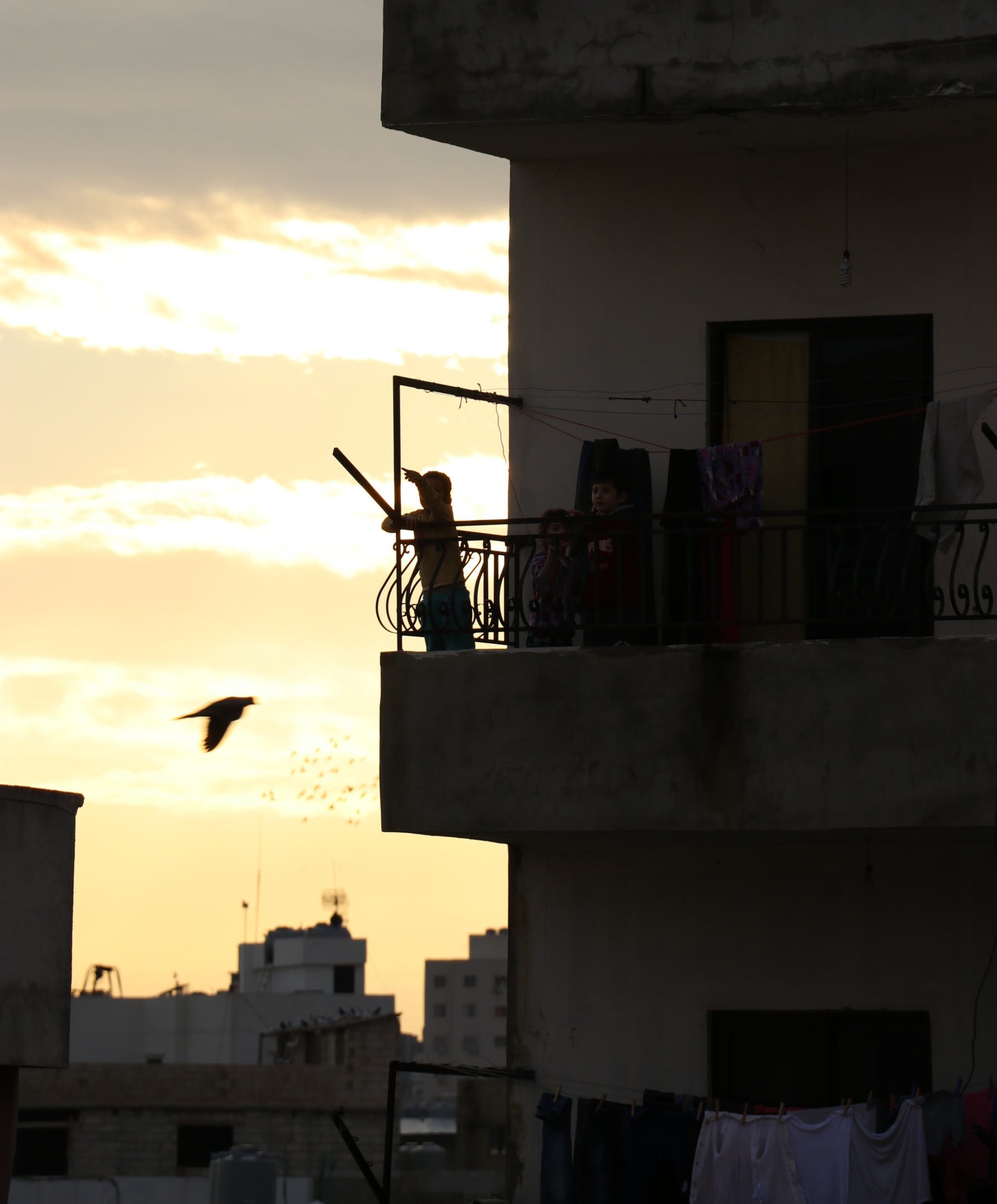The Camp is the Reject of the Reject Par Excellence
by Yousif M. Qasmiyeh, University of Oxford and Refugee Hosts Writer in Residence
I
It bears multiple meanings, depending on how it is said. For my mother, however, the meaning was clear enough to be taken from my father’s mouth to God’s and vice versa; without allowing it to pass through a limbo of any sort. They would normally fight over the mundane, the most mundane of the mundane, and those most mundane of things would remind us all that our voices really did exist and if they were to be given the opportunity to exercise noise again, they would do so to their hearts’ content. My mother would become silent and to reiterate her silence she would only request to be left alone and be allowed to see God’s face. Now, they are both old and frail; my father is still in the company of his voice while the woman, that woman, is still looking for her face and God’s.
II
Once, I asked my mother: Mother, in the absence of a place, who invites who? She looked at me and said with a concerned tone of voice: My son has gone mad! Hurry! Hurry up! Summon the imam to recite over him!
III
Madness is what accompanies us to the unpredictable, to the camp. The camp’s unpredictability lies only in the eyes of the dwellers.
IV
It is the tremor in the hand that invites. My grandmother, in Nahr Al-Bared, used to squeeze our little hands whenever we appeared at her doorstep and say: How did you leave the camp? We never answered.
V
By intending to capture the face, the whole body becomes hostage to intention.
VI
In intention, the prevalent tense is the past.
VII
We never listened to my mother and always insisted on swallowing the chewing gum thinking that it might, one day, become a balloon that would transfer us to God.
VIII
Is the memory of the camp not the camp?
IX
Suddenly, our senile neighbour stuffed her memories in a plastic bag and left.
X
The abstract in the camp is the body.
XI
In the bomb shelter in Baddawi camp, in complete darkness, my mother, to ensure we were by her side, would count us, not knowing that, most of the time, the children she was tapping and uttering the number of belonged to other families.
XII
The man whose sister is also my sister once asked me: who is older, God or the camp?
XIII
In the camp illness befalls us without organs. My camp’s doctor, before my eyes, injected a line of people with the same syringe. His eyes never flinched, his only act was to wipe off the blood after each jab.
XIV
The camp has its own sky. When people shoot in the air in happiness and in despair it is to kill the bird that is never there.
XV
My father who has persisted in writing since a young age has not published a single thing. In his beige room, with eyes trying to see, he showed me one of the magazines with a poem of his that bore somebody else’s name.
XVI
The face emanates the voice. The voice emanates the face. The throat is as deep as a sudden well. The hands are bony. The feet are the size of a shadow; wide, cracked and bloodless.
XVII
We look at it to see what it is that is not ill.
XVIII
Those vaccinated limbs are countersignatures on bodies as invisible as God’s face.
XIX
The line in the photo, faint and red, cutting through my mother’s headscarf is not a coincidence but a stray voice for the imminent throat that is yet to be born.
XX
The evasion of life is the evasion of death to a certain extent. In suspecting what will never come is on a par with the over-reading of survival and its conditions, without knowing who the survivor is to start with.
XXI
The camp is the reject of the reject par excellence.
XXII
With a fist as arid as the face we gather the dead from their stray limbs. There, in their only place, we will plant some homely plants and borrow water.
*
Listen to Yousif reading his poem here:
This poem, by Refugee Hosts writer in residence Yousif M. Qasmiyeh, was originally published by Interruptions: New Perspectives on Migration. Read the original article here.
You can read, and listen to, more of Yousif’s poetry for Refugee Hosts here.
Featured image: overlooking Baddawi refugee camp, Lebanon. (c) E. Fiddian-Qasmyeh, 2016.

3 comments